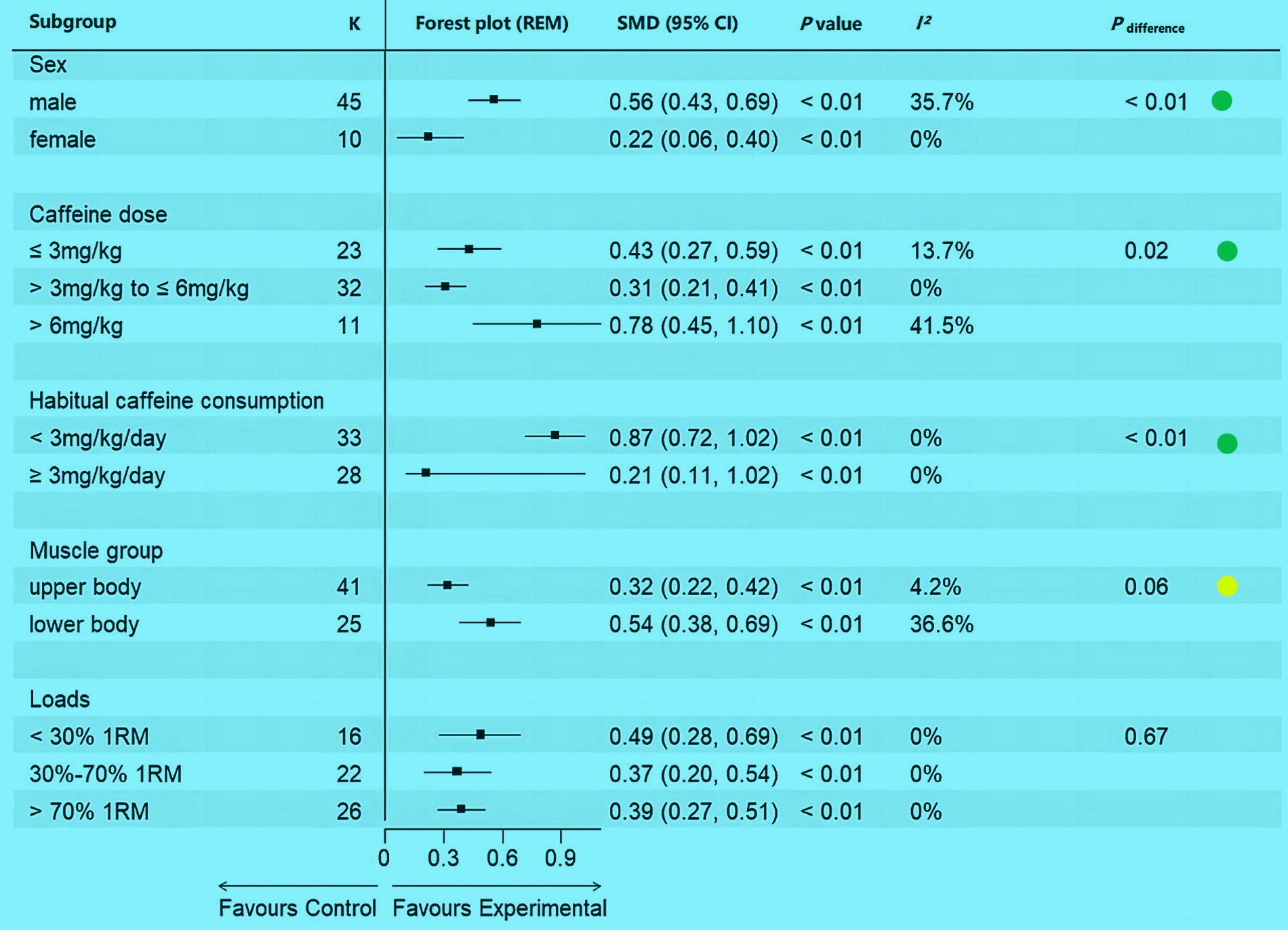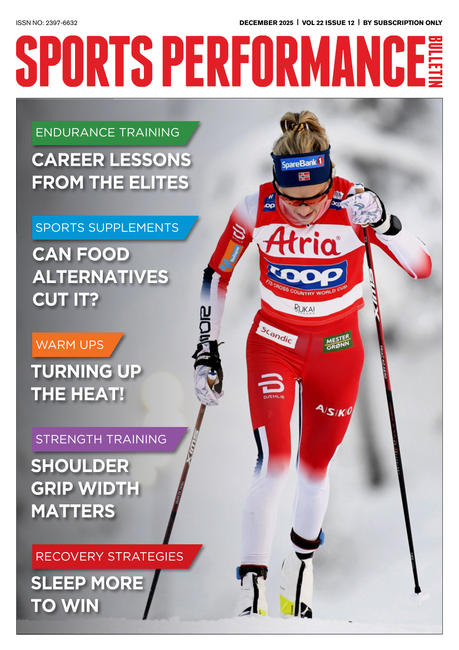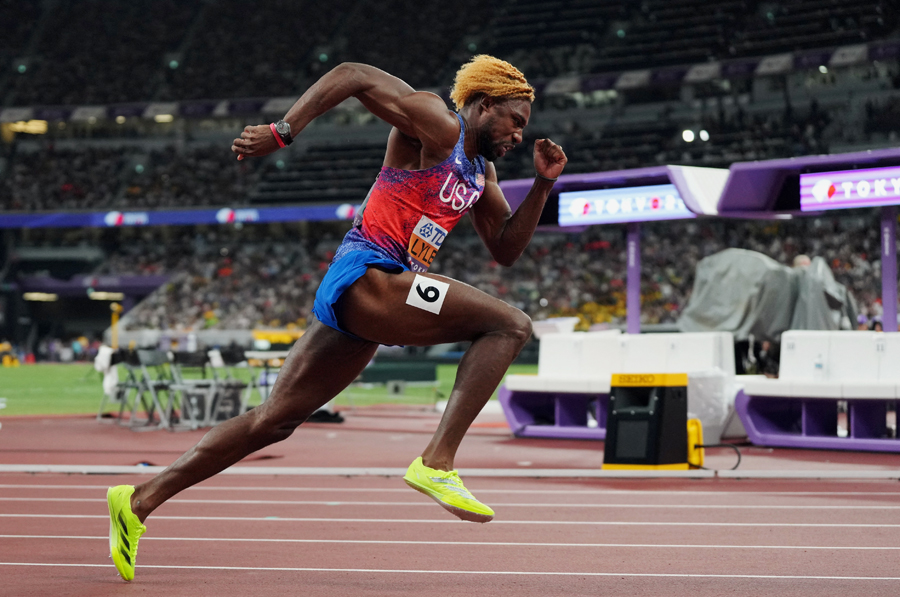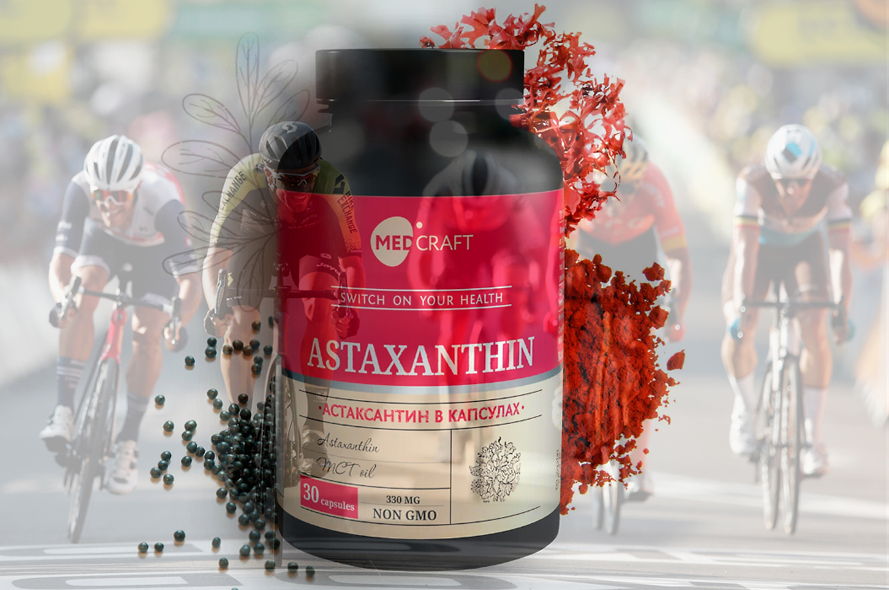Caffeine for strength training: buzz or bust?
Can pre-exercise caffeine supercharge your resistance workouts or is it just hype? SPB looks at some newly published evidence that provides some definitive answers
Scientists have been interested in the relationship between caffeine and human performance for over half a century. That’s because unlike many of the sports supplements claiming to enhance athletic performance, caffeine has stood the ‘research test of time’. One of the earliest studies showing the clear benefits of pre-exercise caffeine ingestion and endurance performance was carried out in 1978 by the famous exercise physiologist Dr David Costill(1).
Since then, study after study has shown that by helping to overcome central nervous fatigue, caffeine taken prior to or at the start of exercise can significantly boost endurance performance in events where exercise duration is 30 minutes or more. This is especially so during longer events where lower doses of caffeine are needed to produce beneficial performance effects (see box 1 and also box 2 for an explanation of dosage). In more recent years, studies have also shown that caffeine supplementation can benefit athletes whose sports involve shorter, more intense efforts – eg football, rugby and other team sports, middle and sprint distance running/rowing/cycling/swimming etc(2,3).
Box 1: Caffeine dose and event duration
In terms of research on optimum caffeine dose rates for endurance performance, a large number of studies have reported a wide range of results. These can be summarized as follows:
-
Events less than 30 minutes’ duration – caffeine doses of 6-9mgs/kg appear to produce significant performance benefits in trained subjects(4,5).
-
Events from 30-60 minutes’ duration – in runners, doses of 3mgs/kg and 6mgs/kg enhanced performance, but 9mgs/kg had no effect(6). In cyclists, doses of 5, 9 and 13mgs/kg all produced enhanced performance, and the magnitude of performance gain was the same for all doses(7), while another cycling study produced performance gains with doses of 2.1, 3.2 and 4.5mgs/kg, the gains being greatest at 3.2 and 4.5mgs/kg(8).
-
Events over an hour – intakes of 1-2mgs/kg enhanced cycling performance at the end of 2 hours of cycling to the same degree as 6mgs/kg given at the beginning(9). Some researchers have suggested that this is because individuals may become more sensitive to caffeine as fatigue accumulates. Also, some studies have shown that large amounts of caffeine (9mgs or more per kilo) may actually be detrimental to performance in prolonged endurance events(6).
Box 2: Understanding caffeine dosage
Once ingested, caffeine is distributed fairly evenly throughout the body and since people vary widely in their body mass, most researchers consider that the best measure of caffeine dose is on a ‘per kilogram of body mass’ basis. This is easily obtained by dividing the total amount of caffeine ingested by your body mass in kilos; eg if you take 200mgs of caffeine and you weigh 80kgs, your dose rate is 200/80 = 2.5mgs/kg. If you’re trying to achieve a particular dose rate then the total amount of caffeine you need to ingest is easily calculated by multiplying the dose rate you require by your weight in kilos. For example if you weigh 60kgs and you want to achieve a dose rate of 6mgs/kg, your total dose is 6 x 60 = 360mgs.
Caffeine and strength
Given its effectiveness for boosting endurance performance, it’s unsurprising that scientists have also wondered which other aspects of athletic performance might be enhanced by pre-exercise caffeine – one of those aspects being strength and strength training. Given that many sports such as track and field and team sports rely heavily on power-based actions like jumping and sprinting(10,11), and that resistance training is a cornerstone of strength and conditioning programs aimed at developing muscular power(12), enhancing resistance training performance could have an potent knock-on benefit for such athletes. This explains why so many athletes use sports supplements to either improve resistance-training performance, or post training recovery (eg whey protein).
One popular pre-strength training supplement is of course caffeine, which has been demonstrated to improve muscular strength when performing resistance training exercises(13). However, the results in studies into caffeine, strength and resistance training have not been uniform in their findings. Researchers have attempted to summarize and combine the previous study findings on caffeine and strength in so-called ‘meta-analyses’, and they have reported that caffeine doses of around 1 to 7mgs per kilo of bodyweight can produce small improvements in maximal strength (one-repetition maximum [1RM])(14,15). However, the benefits shown were very modest indeed – in fact, almost trivial in size.
Not so simple
The problem with these previous meta-analysis studies is that for real athletes in the real world, maximal strength measures may not be especially relevant. That’s because resistance training to boost athletic performance often emphasizes muscular power at submaximal loads, aiming to improve the ability to lift heavy loads at high velocities(16). And here, the research findings are somewhat different; recent review studies have concluded that caffeine may have a greater effect on muscular power – specifically movement velocity and power output – than on maximal strength during resistance exercise(17,18).
The question as to whether pre-training caffeine can really benefit athletes undergoing resistance training however is further complicated by the fact that to date, only one meta-analysis has examined the effects of caffeine supplementation (where doses of 1-9 mg/kg were used) on muscular power during resistance exercises(19). This analysis included 12 studies with 151 participants, and found a significant increase in mean velocity (MV) during bench press and squat across loads from 10 to 100% of 1RM. But this study had three notable limitations:
· Firstly, it included studies using multi-ingredient caffeinated supplements (eg coffee and energy drinks), making it difficult to isolate the independent effect of caffeine and those effects from other ingredients.
· Secondly, there was a lack of subgroup analyses by sex, dose, and habitual caffeine consumption, which may moderate the effectiveness of ingested caffeine(20). In other words, this analysis wasn’t able to determine whether or how the amount of pre-exercise caffeine you ingest, your sex or your habitual caffeine intake (ie tea and coffee intake) might affect the benefits you receive.
· Thirdly, it didn’t explore whether the loading used while resistance training (ie high % of 1-rep max vs. low % of 1-rep max) affected the benefits produced by caffeine ingestion.
In plain English, when it comes to pre-exercise caffeine supplementation for the purposes of enhancing exercise movement velocity and muscle power during resistance training workouts, there’s still much uncertainty as to what caffeine dose might work best, how habitual intake of caffeine impacts the benefits and whether biological sex affects an athlete’s response to any caffeine ingested.
New research
To try and provide some definitive answers on these questions and make practical recommendations for athletes, a new study by a team of Chinese researchers at the Shanghai University of Sport has revisited this topic(21). Published in the journal ‘Frontiers in Nutrition’, this study was also a meta-analysis study (gathering in and pooling all the data from previous studies on this topic, and analyzing it for more robust findings). However, unlike previous meta-analysis studies, this study broke down the findings by participant characteristics (eg age, training status, habitual caffeine consumption, and sex), caffeine intake strategy (eg caffeine dose, form of administration, the timing of ingestion, and caffeine withdrawal effects), and the exercise protocol used (ie type of exercise and the loading). By analyzing these so-called ‘moderating’ factors (using sub-group analyses), the researchers sought to tease out what kind of caffeine supplementation strategy works best for who and in what circumstances.
What they did
A total of 2,739 studies were initially identified through database searches, which were whittled down to 56 for an in-depth screening. Out of these 56 studies, 12 studies met the strict inclusion criteria for analysis and were included in the final meta-analysis. The total sample size of these 12 studies consisted of 230 resistance-trained or recreationally active participants, aged 20–29 years, and reported caffeine doses ranging from 3-12mg/kg. All of the 12 studies administered caffeine in liquid or capsule form 60 minutes before exercise, except one, which used caffeinated gum 15 minutes prior. Sub-group analyses were conducted to examine the effects of caffeine on movement velocity and muscular power during resistance exercise based on the following factors:
· Sex (male vs. female).
· Caffeine dose - low (3mg/kg or less), moderate (between 3mg and 6mg/kg), and high (more than 6mg/kg).
· Habitual caffeine consumption – none to mild (less than 3.0mg/kg/day] and moderate to high (more than 3.0mg/kg/day).
· Muscle groups trained - (upper vs. lower body).
· Loading used - low (less than 30% 1 rep-max], moderate [30–70% 1-rep max], and high [over 70% 1-rep max).
The data was analyzed using STATA 14 software, and a ‘random-effects’ model was applied to estimate differences in average movement velocity and power output between caffeine-supplemented and placebo groups for all the sub-groups listed above.
What they found
When the analysis was completed, the following findings emerged:
· Overall, the use of pre-exercise caffeine significantly improved average movement velocity and average power output during resistance exercises compared to no use of caffeine.
· When comparing like for like (eg same exercises, loadings, caffeine doses etc), significantly greater improvements in average movement velocity were observed in male athletes compared to females.
· Athletes with a low (3mg/kg/day) habitual daily caffeine consumption - ie caffeine consumed through tea, coffee and cola drinks – experienced significantly greater improvements in mean velocity when they took pre-exercise caffeine compared to athletes with a habitually high daily caffeine intake.
· Although all doses of caffeine increased mean velocity during resistance training, higher doses (unsurprisingly) elicited a greater increase.
· Caffeine produced the same movement velocity gains regardless of whether the resistance loading was low, moderate or high.
· There was a trend for caffeine to have a proportionately greater effect when training the lower body compared to upper body; however, this effect was just not quite large enough to be statistically significant, which means that this finding may have arisen due to a statistical blip (a larger number of participants analyzed would have answered this for sure!).
These findings are summarized in the forest plot shown in figure 1.
Figure 1: Forest plot of caffeine and movement velocity gains during resistance training
In this forest plot, each individual square represents a sub-group finding. Squares to the right of the zero line represent a potential benefit of caffeine supplementation compared to no supplementation. The horizontal line shows the spread or variability of the results for that sub-group. The ‘P-difference’ in the right hand column shows whether the difference between using caffeine and not is statistically significant. Any P-difference below 0.05 is considered significant (in this case, biological sex, caffeine dose and habitual caffeine consumption DO affect the benefits that caffeine can bring). The location of muscle groups (upper vs. lower body) shows a trend for caffeine to be more beneficial when training the lower body, but not quite large enough to meet significance.
Applying this information
It is already well understood than caffeine can be beneficial when taken prior to resistance training. But what this study shows is who can benefit the most and how to maximize its effects. The first thing to say is that if you are resistance training to develop speed and power, pre-exercise caffeine can definitely help your workout performance, so it is well worth considering. This is true whether you use low, medium or high loadings. A surprising finding however is that male athletes seem to experience greater benefits – or to put it another way, female athletes benefit less so from caffeine ingestion. Since this study also shows that higher caffeine doses produce a greater effect, the implication is that female athletes may need to take a high mg/kg dose of caffeine to experience an equivalent performance benefit compared to male athletes.
We can also see that habitual dietary caffeine ingestion does matter; if your average daily caffeine intake is 3mg/kg or less, you’ll likely benefit much more from pre-exercise caffeine ingestion than someone who is a tea or coffee addict! This data also suggests that those with a low habitual caffeine consumption will experience a benefit even at relatively low doses of pre-exercise caffeine. It follows that the more caffeine you habitually ingest, the higher the pre-exercise caffeine dose you will likely need to produce a performance lift. However, notice the large spread in findings for the ‘over 3mg/kg’ habitual caffeine users; this indicates a lot of variability in findings, which means that while more habitual caffeine use on average reduces the effects of pre-exercise caffeine, the responses are highly individual. In short, you might be an excellent ‘caffeine responder’ or someone for whom small amounts of pre-exercise caffeine produces real benefits. The contrary can also be true; poor caffeine responders may struggle to receive benefits from pre-exercise caffeine, even at high doses. Therefore, while these guidelines and recommendations are a good starting point, you will still need to experiment and monitor to see what works best for you!
References
1. Med Sci Sports. 1978 Fall;10(3):155-8.
2. Int J Sport Nutr Exerc Metab 2000; 10:436-437
3. Med Sci Sports Exerc 2000; 32 1958 1963
4. Int J Sport Nutr Exerc Metab 2000; 10:436-437
5. Med Sci Sports Exerc 2000; 32 1958 1963
6. J Appl Physiol 1995; 78:867-874
7. Int J Sports Med 1995; 16:225-230
8. J Appl Physiol 1998; 85:709-715
9. J Appl Physiol 2002a; 93:990-999
10. J Strength Cond Res. (2024) 38:1620–6
11. Sports Med Open. (2021) 7:48
12. Appl Physiol Nutr Metab. (2019) 44:1033–42
13. Curr Neuropharmacol. (2015) 13:71–88
14. Heliyon. (2024) 10:e35025
15. J Int Soc Sports Nutr. (2018) 15:11
16. Sports Med. (2020) 50:717–29
17. Sports Med. (2019) 49:17–30
18. Sports Med. (2021) 51:2281–98
19. Sports Med. (2020) 50:717–29
20. J Int Soc Sports Nutr. (2021) 18:1
21. Front Nutr. 2025 Oct 7:12:1686283. doi: 10.3389/fnut.2025.1686283. eCollection 2025
Newsletter Sign Up
Testimonials
Dr. Alexandra Fandetti-Robin, Back & Body Chiropractic
Elspeth Cowell MSCh DpodM SRCh HCPC reg
William Hunter, Nuffield Health
Newsletter Sign Up
Coaches Testimonials
Dr. Alexandra Fandetti-Robin, Back & Body Chiropractic
Elspeth Cowell MSCh DpodM SRCh HCPC reg
William Hunter, Nuffield Health
Keep up with latest sports science research and apply it to maximize performance
Today you have the chance to join a group of athletes, and sports coaches/trainers who all have something special in common...
They use the latest research to improve performance for themselves and their clients - both athletes and sports teams - with help from global specialists in the fields of sports science, sports medicine and sports psychology.
They do this by reading Sports Performance Bulletin, an easy-to-digest but serious-minded journal dedicated to high performance sports. SPB offers a wealth of information and insight into the latest research, in an easily-accessible and understood format, along with a wealth of practical recommendations.
*includes 3 coaching manuals
Get Inspired
All the latest techniques and approaches
Sports Performance Bulletin helps dedicated endurance athletes improve their performance. Sense-checking the latest sports science research, and sourcing evidence and case studies to support findings, Sports Performance Bulletin turns proven insights into easily digestible practical advice. Supporting athletes, coaches and professionals who wish to ensure their guidance and programmes are kept right up to date and based on credible science.











